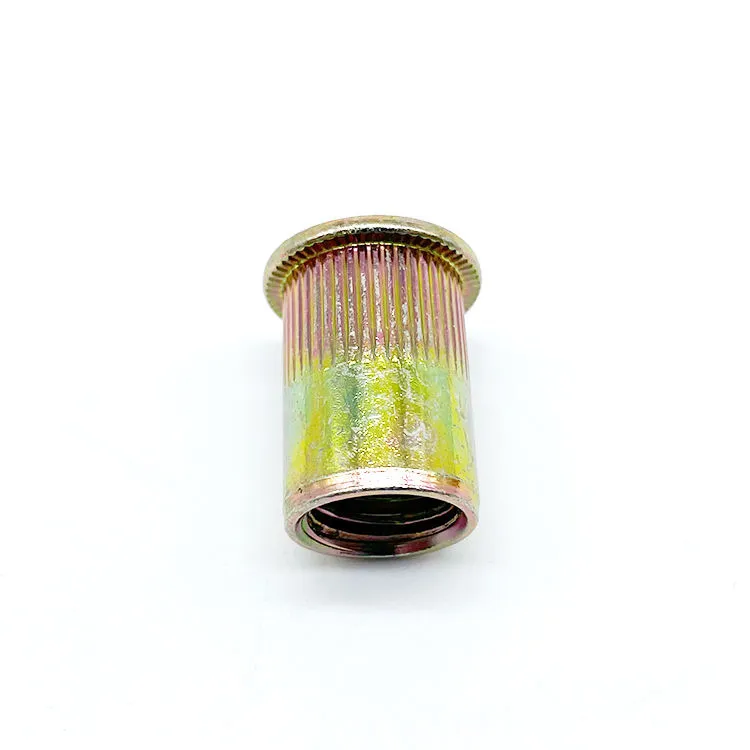

metric shear bolts - a fastener
Nov . 08, 2024 22:08 Back to list
metric shear bolts - a fastener
Understanding Metric Shear Bolts A Fastening Solution
In the realm of engineering and construction, the integrity of structural connections is paramount. Among the myriad fastening options available, metric shear bolts stand out due to their unique design and specific applications. Understanding these fasteners can provide insights into their benefits and how they contribute to the efficiency and safety of various projects.
What Are Metric Shear Bolts?
Metric shear bolts are specialized fasteners designed to withstand shear forces, which are forces that can cause parts of an object to slide past one another. Unlike standard bolts that are primarily subjected to tensile forces, shear bolts are tailored to handle the unique stresses present in specific structural applications.
These bolts are characterized by their metric dimensions, meaning they comply with international metric standards for size and threading. This standardization simplifies design and manufacturing processes, facilitating easier sourcing and compatibility in a global marketplace.
Applications of Metric Shear Bolts
Metric shear bolts are predominantly used in constructions where high shear forces are anticipated. Common applications can be found in structural steel connections, machinery, automotive components, and heavy equipment. For example, in the construction of steel bridges or buildings, shear bolts may be used to secure beams and columns, connecting them in a way that allows them to bear heavy loads while maintaining structural integrity.
Additionally, they are frequently utilized in safety-critical applications, such as in machinery where shear detection is vital. In these contexts, the bolts are designed to fail at a predetermined load, acting as a safety feature that protects other components from damage during excessive stress conditions.
Design Considerations
When selecting metric shear bolts for a project, several key design considerations must be taken into account
metric shear bolts - a fastener

1. Shear Strength The primary characteristic of a shear bolt is its shear strength, which must be calculated to meet the specific loads it will encounter in its application. Engineers often refer to various shear strength ratings provided by manufacturers.
2. Material The choice of material significantly impacts the performance of shear bolts. Common materials include various grades of steel, stainless steel, and even specialized alloys for high-performance applications. The selection depends on the environmental conditions and the load requirements.
3. Thread Type and Size Metric shear bolts come in different thread types and sizes. It is critical to choose the correct threading to ensure compatibility with nuts, washers, and other fasteners within the assembly.
4. Coating and Corrosion Resistance In environments prone to moisture or chemicals, the surface treatment of shear bolts can be crucial. Options such as galvanization or powder coating enhance resistance to corrosion, prolonging the life of the fastener.
Benefits of Metric Shear Bolts
The use of metric shear bolts offers several advantages. Their ability to absorb shear stresses makes them essential in applications where traditional bolts may fail. The standardized metric measurements also facilitate global trade and inventory management as engineers can source equivalent fasteners across various suppliers.
Moreover, by pre-engineering bolt failures at predetermined loads, safety is enhanced, as components can be protected from more severe damage.
Conclusion
In conclusion, metric shear bolts are a vital component in the toolkit of engineers and builders. Their ability to handle shear forces with precision and reliability makes them indispensable in numerous fields, from construction to automotive manufacturing. Understanding their applications, design considerations, and benefits is crucial for anyone involved in designing or constructing safe and durable structures. As projects continue to grow in complexity and scale, the role of shear bolts will undoubtedly evolve, maintaining their relevance in modern engineering practices.
Latest news
-
Hot Dip Galvanized Bolts-Hebei Longze|Corrosion Resistance&High Strength
NewsJul.30,2025
-
High-Strength Hot-Dip Galvanized Bolts-Hebei Longze|Corrosion Resistance&High Strength
NewsJul.30,2025
-
Hot Dip Galvanized Bolts-Hebei Longze|Corrosion Resistance&High Strength
NewsJul.30,2025
-
Hot Dip Galvanized Bolts - Hebei Longze | Corrosion Resistance, High Strength
NewsJul.30,2025
-
High-Strength Hot Dip Galvanized Bolts-Hebei Longze|Corrosion Resistance, Grade 8.8
NewsJul.30,2025
-
Hot Dip Galvanized Bolts-Hebei Longze|Corrosion Resistance,High Strength
NewsJul.29,2025

